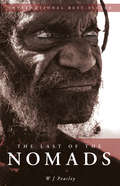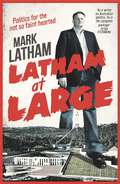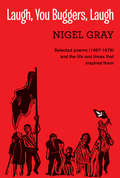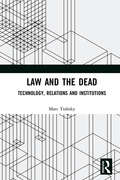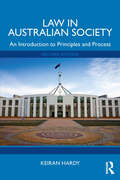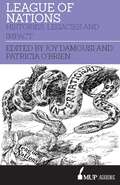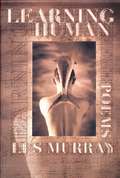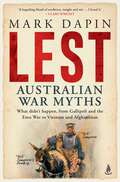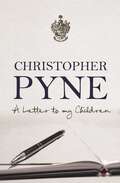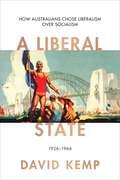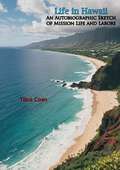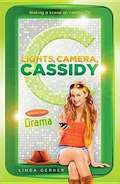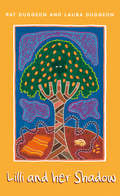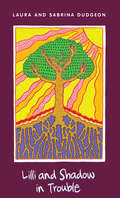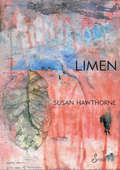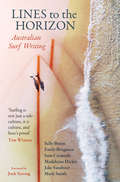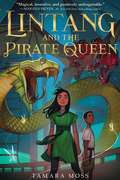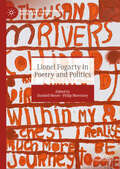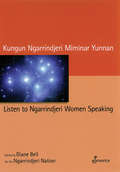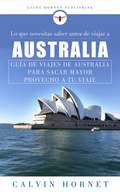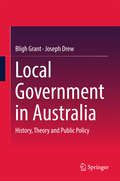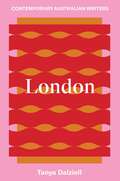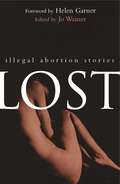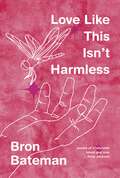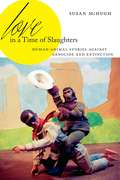- Table View
- List View
Last of the Nomads
by W J Peaseley'Peasley's description of the events … is informative, compassionate, exciting and at times deeply moving.' —Don Grant, Australian Book Review 'The intriguing story of [the rescue of an elderly couple believed to be the last Australian nomads] and how they survived alone for the previous 30 years or so in the unrelenting western Gibson Desert region of WA, is fascinating reading.' — Chris Walters, The West Australian 'This is a most remarkable book about the recovery during the 1977 drought of an ailing Aboriginal nomadic couple, living in desert regions of Western Australia.' — The National Times Warri and Yatungka were believed to be the last of the Mandildjara tribe of desert nomads to live permanently in the traditional way. Their deaths in the late 1970s marked the end of a tribal lifestyle that stretched back more than 30,000 years. The Last of the Nomads tells of an extraordinary journey in search of Warri and Yatungka.
Latham at Large
by Mark LathamMark Latham is, by his own admission, the most outspoken, rebellious, thoroughly uncontrollable former leader in Labor Party history.In these brilliantly written opinion pieces Latham pulls no punches as he scrutinises the Australian political landscape, looking at everything from climate change to Clive Palmer, to what went wrong with Rudd-Gillard and what's now wrong with Abbott. Beyond politics, Latham dabbles in his other great interests, such as critiquing the modern media and explaining his fascination with horse racing. His hilarious 'Henderson Watch' columns and other satirical writing also feature in Latham at Large.Mark Latham has a formidable intellect and a forensic ability to get to the bottom of things. This is an entertaining, thought-provoking, sometimes scathing, often humorous collection from a man who is not afraid to speak his mind. There is no one else like him in Australian public life.
Laugh, You Buggers, Laugh: Selected poems (1967-1979) and the life and times that inspired them
by Nigel GrayLaugh, You Buggers, Laugh is no ordinary collection of poems. Nigel Gray led an extraordinary life in extraordinary times. He was a political activist and performance poet in the UK during the days of rage and hope, flower power and free love, radical social change and political upheaval that typified the 1960s and 70s. He travelled on political forays to Southeast Asia, Africa, Ireland, and mainland Europe. This is a selection of poems from that time set in a context that explains the situations and experiences that inspired them. Nigel Gray, an Irish-born West Australian, is the multi-award-winning author of a hundred published books for adults and children.
Law and the Dead: Technology, Relations and Institutions
by Marc TrabskyThe governance of the dead in the eighteenth and nineteenth centuries gave rise to a new arrangement of thanato-politics in the West. Legal, medical and bureaucratic institutions developed innovative technologies for managing the dead, maximising their efficacy and exploiting their vitality. Law and the Dead writes a history of their institutional life in the nineteenth and twentieth centuries. With a particular focus on the technologies of the death investigation process, including place-making, the forensic gaze, bureaucratic manuals, record-keeping and radiography, this book examines how the dead came to be incorporated into legal institutions in the modern era. Drawing on the writings of philosophers, historians and legal theorists, it offers tools for thinking through how the dead dwell in law, how their lives persist through the conduct of office, and how coroners assume responsibility for taking care of the dead. This historical and interdisciplinary book offers a provocative challenge to conventional thinking about the sequestration of the dead in the nineteenth and twentieth centuries. It asks the reader to think through and with legal institutions when writing a history of the dead, and to trace the important role assumed by coroners in the governance of the dead. This book will be of interest to scholars working in law, history, sociology and criminology.
Law in Australian Society: An Introduction to Principles and Process
by Keiran HardyWhat is the ‘rule of law'? How do laws get made? Does our legal and political system achieve justice for all Australians equally? Designed for beginners as well as non-law students, this textbook provides a comprehensive and accessible guide to understanding Australia's system of law and government.Law in Australian Society explains legislation and case law, courts, and the doctrine of precedent. Keiran Hardy examines the roles played by parliaments, politics, and the media. He explains founding principles, including democracy, liberalism, the separation of powers, and federalism. Human rights and justice are highlighted, with an emphasis on First Nations Peoples and the law. The book explains criminal responsibility and the justice system, including police powers and the criminal trial. It concludes with case studies of cybercrime and counterterrorism laws to illustrate law reform in action. This second edition has been fully updated throughout, including recent legislation, cases, and topical issues from Australian law and politics, including from the COVID-19 pandemic and the recent referendum on an Indigenous Voice to Parliament. Each chapter features practical examples, chapter summaries and review questions together with a glossary of key terms. Concise, accessible and up-to-the-minute, this is a vital guide for anyone seeking to understand Australian law and government.
League of Nations: Histories, legacies and impact
by Patricia O'Brien Professor Joy DamousiLeague of Nations offers new perspectives on the history, legacies and impact of the League of Nations. The essays in this collection demonstrate how vastly diverse topics from film, education, Christian youth movements, colonial rule in the Pacific islands, national economic analyses, disarmament, humanitarianism and refugees as well as international relations, national sovereignty and domestic League of Nations associations—all led to Geneva. As well as the shared connection with Geneva and the League, the chapters are temporally aligned within the twenty-five-year lifespan of the League, from 1920 to 1946. Together the book revitalises the history of the League, and deepens understandings of how its 'many organs' operated and impacted on far-flung parts of the globe, simultaneously crossing borders and scholarly boundaries.
Learning Human
by Les MurrayA bighearted selection from the inimitable Australian poet's diverse ten-book body of work Les Murray is one of the great poets of the English language, past, present, and future. Learning Human contains the poems he considers his best: 137 poems written since 1965, presented here in roughly chronological order, and including a dozen poems published for the first time in this book. Murray has distinguished between what he calls the "Narrowspeak" of ordinary affairs, of money and social position, of interest and calculation, and the "Wholespeak" of life in its fullness, of real religion, and of poetry. Poetry, he proposes, is the most human of activities, partaking of reason, the dream, and the dance all at once -- "the whole simultaneous gamut of reasoning, envisioning, feeling, and vibrating we go through when we are really taken up with some matter, and out of which we may act on it. We are not just thinking about whatever it may be, but savouring it and experiencing it and wrestling with it in the ghostly sympathy of our muscles. We are alive at full stretch towards it." He explains: "Poetry models the fullness of life, and also gives its objects presence. Like prayer, it pulls all the motions of our life and being into a concentrated true attentiveness to which God might speak." The poems gathered here give us a poet who is altogether alive and at full stretch toward experience. Learning Human, an ideal introduction to Les Murray's poetry, suggests the variety, the intensity, and the generosity of this great poet's work so far.
Lest: Australian War Myths
by Mark DapinFrom Simpson&’s donkey and the Emu War to Vietnam and Ben Roberts-Smith, Australian military history is full of events that didn&’t happen the way most people think they did. In his inimitable style, award-winning author Mark Dapin sets the record straight. Australia has many stories and statues &‘lest we forget&’ our military past. But from Simpson&’s donkey to Ben Roberts-Smith, our history is full of events that didn&’t happen the way most people think they did. The first Anzac Day, for example, was far from being a solemn march – it was a celebration where people dressed as cavemen and dinosaurs, among other things. And is it true that British officers callously dispatched Australian soldiers to their deaths in the Dardanelles, as we&’ve been told? Did we really hate the soldiers returning from Vietnam? Were the white-feather women of the First World War fact or fiction? In his inimitable style, award-winning author and historian Mark Dapin sets the record straight, showing that the reality was often completely different from the myth – and that in celebrating the wrong people we often overlook the real heroes. &‘With Lest, Mark Dapin transforms his trademark humour into serious history … It forces us to look again at stories we think we all know – or should know – and reframe them with intellectual rectitude and rigour … Lest offers new perspectives on the past from one of Australia&’s most interesting and provocative thinkers.&’ Clare Wright
Letter To My Children
by Christopher PyneWhy do seemingly intelligent men and women leave their families to spend more than half the year travelling to Canberra, and spending night after night at electorate and campaign events? Surely there are easier ways to earn a living. A Letter to My Children is Christopher Pyne's honest account of how a belief in the power of public service, inspired by his crusading ophthalmologist father, led him to pursue a career in politics, driven by the ambition of leaving a legacy for the next generation.
Liberal State: How Australians Chose Liberalism over Socialism 1926–1966
by David KempA Liberal State: How Australians Chose Liberalism over Socialism 1926-1966 explores the revival of Australian political liberalism after the Great Depression of the 1930s and its sweeping domestic political triumph after World War II over utopian socialism. The fourth title in a landmark five-volume Australian Liberalism series, A Liberal State examines how Australians reasserted their claim to control their own lives, following decades of expanded government control over economic and social life, and intrusive wartime and post-war restrictions. From the 1920s Robert Menzies became the major voice for liberal thought in the nation's political life and David Kemp looks at his role in reconstructing liberal and conservative politics. The book highlights the importance of the factional struggles within the Labor Party arising from its adoption of a Socialist Objective, and the domestic and international advance of utopian socialist ideology during World War II and the Cold War. A Liberal State tells of Jack Lang's advocacy of the socialisation of industry in New South Wales in the 1930s, and of Menzies as war-time prime minister and his key relationship with John Curtin. It assesses Menzies's historic Forgotten People statement of liberal ideas, the formation of the Liberal Party of Australia, and how, after his election victory in 1949, Menzies rebuilt a liberal basis for national policy during sixteen and a half years as prime minister.
Life in Hawaii: An Autobiographic Sketch of Mission Life and Labors
by Titus CoanBorn in Connecticut and educated at East Guilford Academy, Coan went to western New York, where he was converted in a Charles G. Finney revival. After graduation from Auburn Theological Seminary and ordination in 1833, he explored the Argentine region of Patagonia on behalf of the American Board of Commissioners for Foreign Missions (ABCFM). In 1834 he married Fidelia Church, sailed for Hawaii, and was stationed at Hilo. He made an extended evangelistic tour of the island in 1836, which produced dramatic results. In 1837 and 1838, thousands flocked to Hilo for days and nights of fervent preaching, prayer, and manifestations of the power of the Spirit. Prior to 1837, prospective church members were rigorously examined and less than 1,200 had been admitted. After that year admissions averaged nearly 2,000 annually. By 1853, in a native population of about 71,000, over 56,000 were Protestants. The ABCFM moved to declare Hawaii Christianized and terminate the mission. Coan advocated a mission by Hawaiians to the Marquesas Islands and made two voyages there as a delegate of the Hawaiian Missionary Society. In 1873 he married Lydia Bingham, daughter of Hiram and Sybil Bingham, his first wife having died in 1872. He wrote Adventures in Patagonia (1880) and Life in Hawaii (1882). He died in Hawaii.- David M. Stowe, “Coan, Titus,” in Biographical Dictionary of Christian Missions, ed. Gerald H. Anderson (New York: Macmillan Reference USA, 1998), 139.
Lights, Camera, Cassidy: Drama
by Linda GerberCassidy Barnett is not your average twelve- (almost thirteen!-) year -old. While most other girls her age are worries about school and clothes and boys, Cass has spent most of her life traveling the world with her travel TV-show-host parents. She gets to visit fabulous places and loves connecting with people via her popular blog. But when the producers of the show decide that they want to feature Cass on camera, all of that starts to change. Now she's got to think about what she says, how she looks, and what the world is saying about her. Because like it or not, it's LIGHTS, CAMERA, CASSIDY! G'day, mates! In this fourth episode, Cassidy and the crew of When in Rome get a hearty dose of Australian hospitality when they head to Melbourne to film. But while Cass is starting to get used to her celebrity status, she's not sure she likes it when she realizes that most of the fans seem more interested in Logan than in her. At the same time, there seem to be a lot of technical glitches interfering with filming. What's going on? And can Cass get over her jealousy and help figure it out before it's too late?
Lilli and Her Shadow
by Pat Dudgeon Laura DudgeonLilli’s family is moving from the outback to the city, and Lilli is sure she'll be horribly lonely. She'll miss the mangoes, she'll miss her cousins, and most of all, she'll miss her Grandma. But when Grandma sends a special friend south with her granddaughter—a secret Shadow to look after her—Lilli discovers life in the city isn't so bad after all.
Lilli and Shadow in Trouble
by Laura Dudgeon Sabrina DudgeonThis is the second book to follow the adventures of Lilli—a young girl who has moved from the Australian bush to the city—and her magical animal friend, Shadow. While on holiday visiting family in the bush, Lilli discovers that Shadow is fading. Someone, or something, has taken over Shadow’s home in the old mango tree and Shadow is scared. With Lilli’s help, and with some assistance from Nan, they find the best solution for everyone, including the mango tree creature. Inspired by the art of Aboriginal storytelling, this charming read is sure to entertain junior readers.
Limen
by Susan HawthorneWhen two women and a dog set off on a holiday, they have no inkling of what's to come. They wake to find the river has crept up silently during the night. Trapped by floodwater, they devise escape routes only to be faced with more obstacles at every turn. Only the dog remains calm. This poetic novella grips you with its language, its pace, and its anxieties. The word limen is defined as "a threshold below which a stimulus is not perceived." In Susan's Hawthorne's verse novel, there is the threat of the rising waters--the women's safety is above the threshold of perception. This definition feeds the suspense and tension of this book. However, the word also suggests a transition, a state, a threshold between earth and sky, between day and night, between water and heat, survival and drowning--and it is these paired states, together with many more that also drive narrative.
Lines to the Horizon: Australian Surf Writing
by Mark Smith Madelaine Dickie Sally Breen Sam Carmody Jake Sandtner Emily BrugmanTim Winton says, ‘Surfing is not just a subculture, it is culture, and here's proof', while Jock Serong says that the collection demonstrates our horizons are unlimited. From Gold Coast surf culture to the relationships of humans to the sea and from surf travel in Mexico to Taj Burrow's final campaign in Fiji, this collection features six authors writing about surfing, and the ocean, in six very different ways. Their stories are reverential, energetic and mystical, and between them cover thousands of kilometres of coastline, at home and abroad.
Lintang and the Pirate Queen
by Tamara MossGutsy girls and strong women make up the diverse and appealing crew of a pirate ship that battles intrigue and deadly monsters in an action-filled fantasy adventure. “Combine a pirate adventure of mythic proportions, a uniquely charming cast of characters, and a vivid new fantasy world and you get Lintang and the Pirate Queen. Magical, inventive, and positively unforgettable.”—Marissa Meyer, bestselling author of The Lunar Chronicles Lintang is an island girl who longs for daring and danger. When she meets the feared pirate, Captain Shafira, and her all-female crew, Lintang is determined to join them. Secrets within secrets, life-or-death battles with spectacular monsters, and hair’s breadth escapes keep readers turning the pages of a story populated by women of color who are fighters, adventurers, and leaders.
Lionel Fogarty in Poetry and Politics (Modern and Contemporary Poetry and Poetics)
by Dashiell Moore Philip MorrisseySince the publication of his first poetry collection Kargun in 1980, Lionel Fogarty has produced some of the most complex, playful and strident poems written in English, and has been regarded by some as the greatest Aboriginal Australian poet of his generation. While over the course of his career, Fogarty has had relatively little recognition in awards or grants, recent attention to his work suggests a new turn in how his poetry is read and understood in Australia and overseas. Emerging from these conversations, Lionel Fogarty in Poetry and Politics illuminates the craft and art of Fogarty’s poetry in hand with his political activism in order to open his work for new readers and researchers. Bringing together a wide range of critical and creative voices in the first book-length study of Fogarty’s work, this essay collection represents a landmark moment for the study of Indigenous studies, poetry and poetics, Australian literature, and for future work on Fogarty’s poetry.
Listen to Ngarrindjeri Women Speaking: Kungun Ngarrindjeri Miminar Yunnan
by Diane BellThe Ngarridjeri women of South Australia reveal their thoughts, daily challenges, and visions for the future in this moving book. The stories range from charming and delightful to jarring and shocking, and delve into matters both social and personal--including the Hindmarsh Island bridge controversy. Serving as a model for how indigenous and nonindigenous women can jointly write a book, this narrative can help indigenous women in other communities develop their own collective history and visions for the future.
Lo que necesitas saber antes de viajar a Australia
by Calvin HornetDisfrutemos un poco del atractivo del país. Más de 20,000 millas de costa virgen, una serie de ciudades basadas en el ingenio y la intriga, la fauna endémica saltando por todas partes ... Aquí es donde se encuentra el monolito más grande del mundo, es el arrecife más largo, la selva más antigua, la cultura y una definición completamente nueva de desierto deshabitado. Con Australia, nunca hay un debate sobre si quieres ir. Es difícil encontrar un alma en el planeta que no esté inspirada por el pensamiento de esta inmensa nación isleña. La pregunta es más sobre cómo transformar Australia de la fantasía a la realidad. Primero son los aspectos prácticos. Simplemente volar por el país lleva cinco horas, nada más que paisaje chamuscado debajo de las puntas de las alas. Incluso en la siempre popular costa este, puede conducir durante horas sin ver nada más que las plantaciones de azúcar y el extraño canguro. El segundo es el costo. La transformación de Australia de una zona rural accidentada a una nación sofisticada no conoce fronteras, y el aumento de los costos tienen muchos visitantes que sobreviven con el vino en caja y los sándwiches de mermelada.
Local Government in Australia
by Bligh Grant Joseph DrewThis book offers a general introduction to and analysis of the history, theory and public policy of Australian local government systems. Conceived in an international comparative context and primarily from within the discipline of political studies, it also incorporates elements of economics and public administration. Existing research tends to conceptualise Australian local government as an element of public policy grounded in an 'administrative science' approach. A feature of this approach is that generally normative considerations form only a latent element of the discussions, which is invariably anchored in debates about institutional design rather than the normative defensibility of local government. The book addresses this point by providing an account of the terrain of theoretical debate alongside salient themes in public policy.
London
by Tanya DalziellJoan London's remarkable body of work, including the award-winning novels and short fiction The Golden Age, Gilgamesh and Sister Ships, tells everyday stories of family, love and loss, with her signature poetic vision. London's stories portray how ordinary people get caught up in extraordinary circumstances and come to live in a world of violence and fear, of beauty and hope. In London Tanya Dalziell takes the reader through the literary career of the Western Australian living treasure, journeying through space and time to offer a unique insight into the development of Australian literature and women's writing across the past four decades. London engages deeply with Joan London's work to reflect on its artistry and the conversations it provokes with the changing times. Dalziell invites readers to traverse London's writing and discover the significant contributions she has made to the contemporary literary landscape.
Lost: Illegal Abortion Stories
by Jo Wainer'It is chastening to read these bald tales, shockingly direct and unvarnished. Each story contains matter enough for a novel. Each one is a window onto a larger life, a broader world: a tantalising view of endlessly unfolding complexities.'-Helen Garner Twenty years ago, Dr Bertram Wainer, the abortion reform doctor and campaigner, placed an advertisement in a newspaper asking women who had illegal abortions to come forward to tell their stories. Their personal testimonies and the accounts from doctors and nurses are published for the first time in this collection. Women had to draw on deep reservoirs of courage and determination faced with the fear of illegal abortion. This collection tells of some of those acts of courage and the difficulties society placed in women's way. Moving and candid, these stories uncover the hidden history of abortion in Australia.
Love Like This Isn't Harmless: Feminist, Crip poetry
by Bron BatemanThrough a fiercely feminist lens, Bateman's latest collection of poems confronts tough themes like sexual abuse and domestic violence with unapologetic honesty and profound insight. From intimate portrayals of family dynamics to reimaginings of mythos, these poems will spark conversation and contemplation.
Love in a Time of Slaughters: Human-Animal Stories Against Genocide and Extinction (AnthropoScene)
by Susan McHughLove in a Time of Slaughters examines a diverse array of contemporary creative narratives in which genocide and extinction blur species lines in order to show how such stories can promote the preservation of biological and cultural diversity in a time of man-made threats to species survival.From indigenous novels and Japanese anime to art installations and truth commission reports, Susan McHugh analyzes source material from a variety of regions and cultures to highlight cases where traditional knowledge works in tandem with modern ways of thinking about human-animal relations. In contrast to success stories of such relationships, the narratives McHugh highlights show the vulnerabilities of affective bonds as well as the kinds of loss shared when interspecific relationships are annihilated. In this thoughtful critique, McHugh explores the potential of these narratives to become a more powerful, urgent strategy of resistance to the forces that work to dehumanize people, eradicate animals, and threaten biodiversity. As we unevenly contribute to the sixth great extinction, this timely, compelling study sheds light on what constitutes an effective response from a humanities-focused, interdisciplinary perspective. McHugh’s work will appeal to scholars working at the crossroads of human-animal studies, literature, and visual culture, as well as artists and activists who are interested in the intersections of animal politics with genocide and indigeneity.
